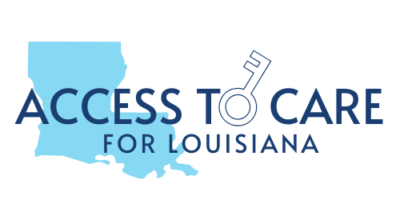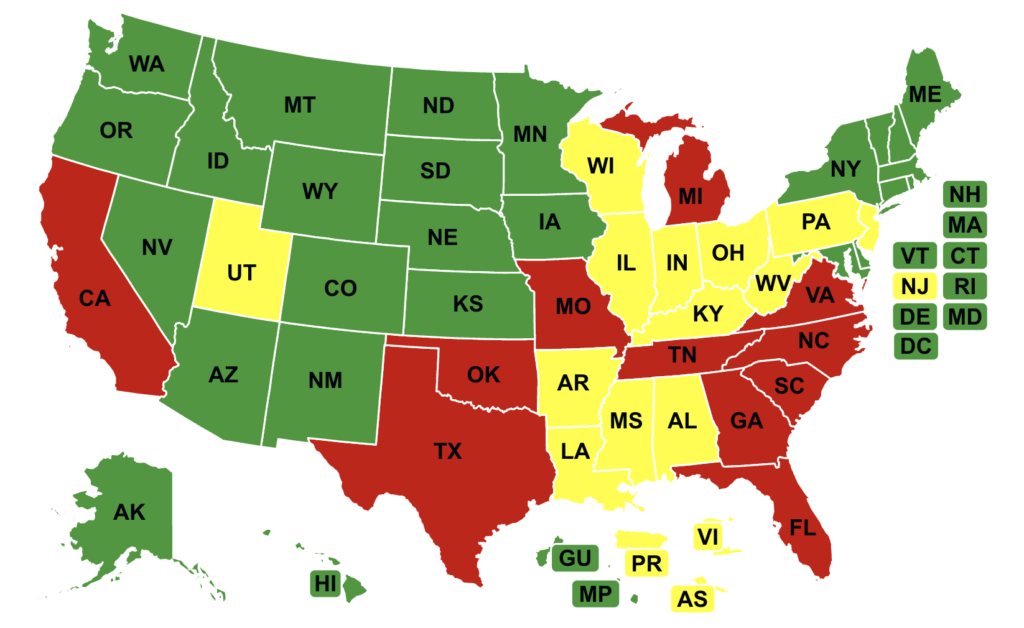An Advanced Practice Registered Nurse is a licensed registered nurse (RN) who has had advanced education at the graduate level, including many hours of clinical training. While there are different roles for APRNs, you are probably most familiar with Nurse Practitioners (NPs). There are 4,700 NPs in Louisiana, providing health care to patients in every part of the state.
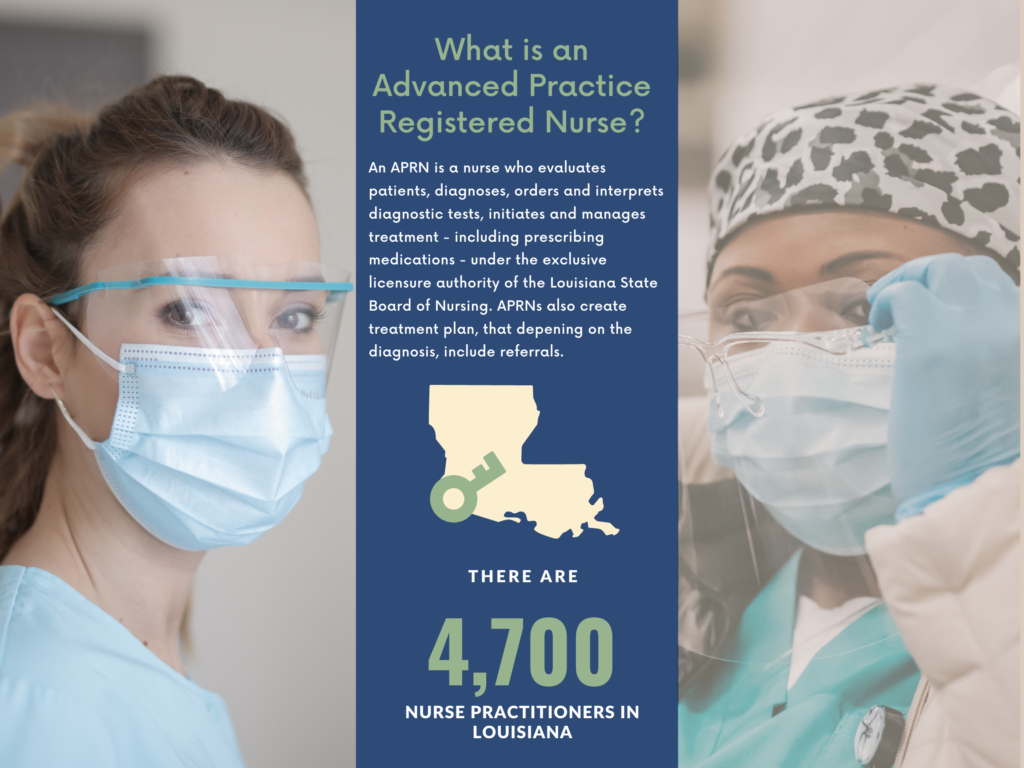
Nurse practitioners provide health care for all types of health problems in patients of all ages, depending on the area of certification. NPs diagnose and treat health problems such as diabetes, high blood pressure, obesity, infections, or injuries. They also stress health maintenance and promotion. NPs perform physical examinations, order tests and x-rays, prescribe medications, counsel patients, consult with or refer to other health care providers, and provide end-of-life care. Because they are nurses, NPs combine nursing and medical care to give their patients excellent health care and help them make better health care decisions. NPs have a holistic approach – that is, they look at the whole person, not just the person’s illness or injury.
States with Full Practice Authority
Currently, 23 states , the District of Columbia, Guam and the VA allow for Full Practice Authority. This means the state has removed barriers to care for nurse practitioners and allows them to practice to the full extent of their training. Some states have had full practice authority for over 30 years. No states have added restrictions since 1994. Since COVID, at least 3 states have lessened the barriers to care and more states are considering it in their 2021 legislative sessions!
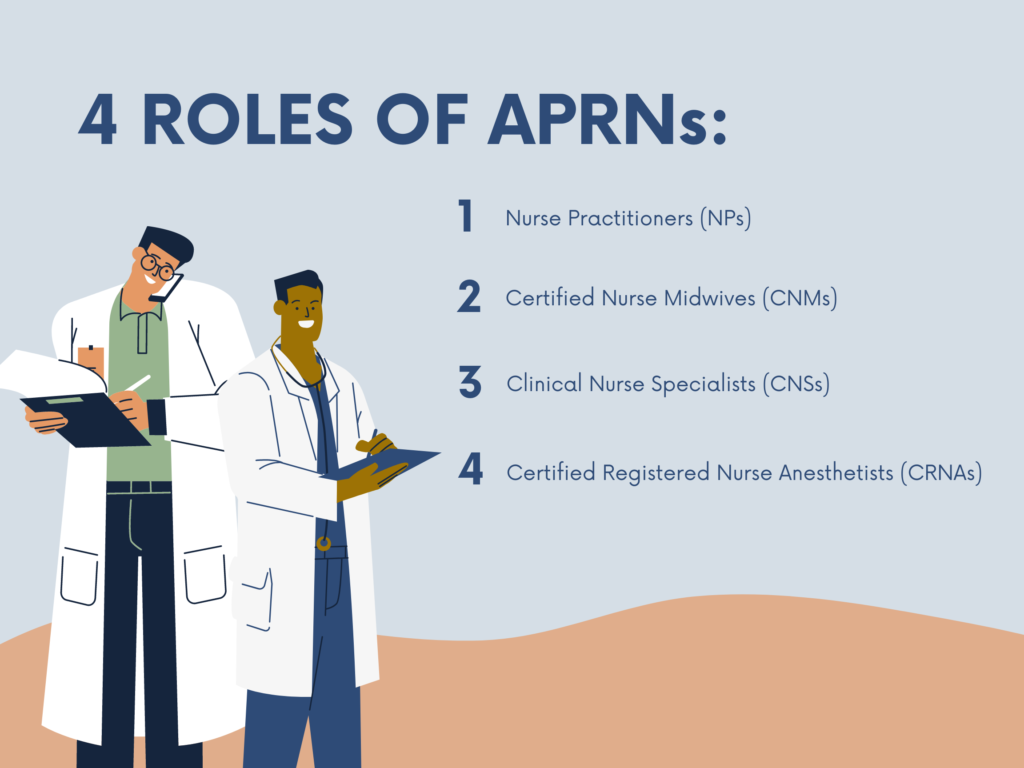
Nurse Practitioners must have completed a four-year bachelor’s program and either a master’s or doctoral degree before they can become licensed. For a total of six to seven years of education. They must also have national certification in their area of specialty and be licensed by the state of Louisiana. Many who enter graduate and post-graduate programs have decades of experience in the healthcare field as a Registered Nurse (RN). APRN students are required to have between 500 and 1500 clinical (clock) hours to graduate and must sit for a rigorous national certification exam to ensure competency in the role and population focus. NPs are board certified in such areas as family, adult, acute care, pediatrics, gerontology, psychiatry, and women’s health.
Nurse practitioners work in all health care settings. NPs are in private health care practices, clinics, hospitals, schools, nursing homes, student or employee health centers, and everywhere patients receive health care.
“Since March 2020, NPs have been allowed to work to the fullest extent of their education and training to better serve the people of Louisiana. The Governor’s Emergency Order lifting barriers to practice allowed NPs to freely move to locations where they were most needed so more patients could access care during this critical time.”
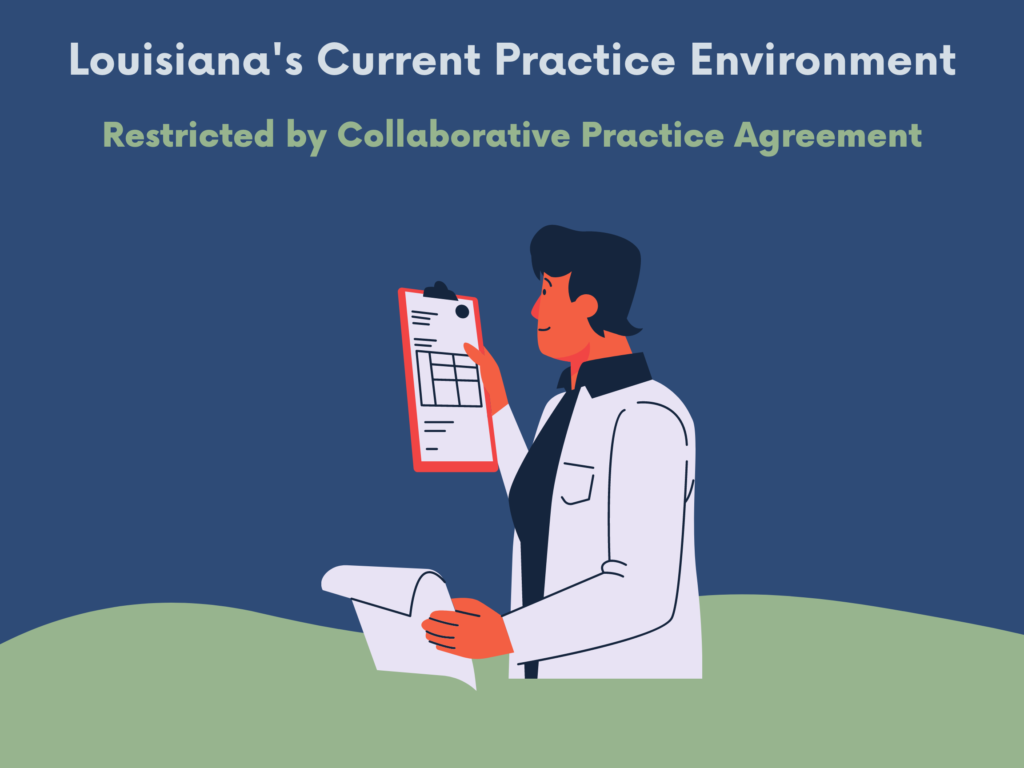
A Collaborative Practice Agreement is a formal agreement between a physician and Nurse Practitioner that is mandated for the NP to practice. The CPA defines the relationship and requirements of the MD to be available to the NP by phone. This agreement is specific to a geographic location.
The collaborate must be of the same specialty, only required to be available by phone, and be credentialed with the same hospital system and the insurance company as the Nurse Practitioner. There is NO direct supervision required by the CPA.
The CPA limited the location of where a nurse practitioner can practice. The CPA is tied to the Nurse Practitioner’s insurance credentialing. This prevents the NP from being able to change practice locations without going back for recertification through the insurance company. It can significantly inhibit the ability for the NP to gain employment in a timely manner.
To learn more about what can be done to improve access to health care in Louisiana, click the link below!
